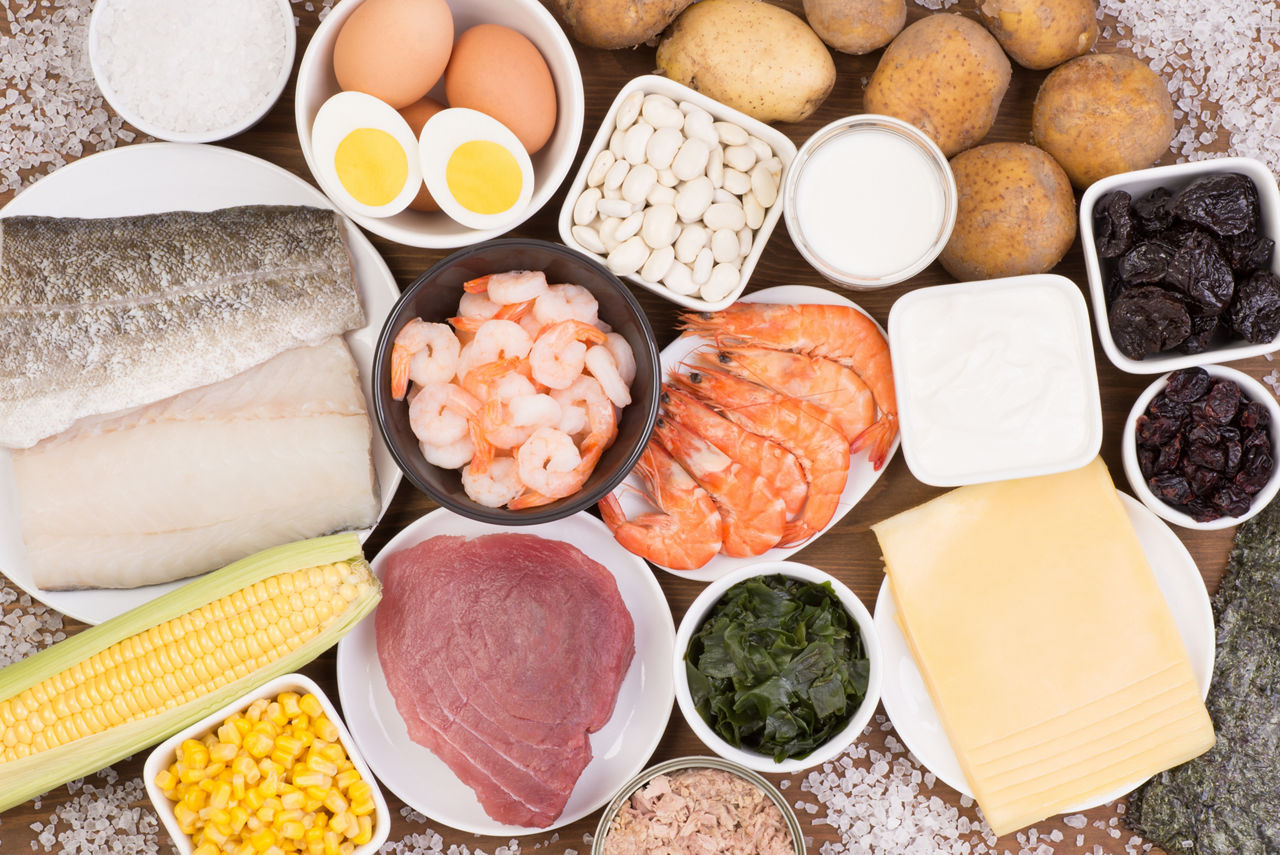Breastmilk is the best for babies. The World Health Organisation recommends exclusive breastfeeding for the first six months of life. Unnecessary introduction of bottle feeding or other food and drinks will have a negative impact on breastfeeding. After six months of age, infants should receive age-appropriate foods while breastfeeding continues for up to two years of age or beyond. Consult your doctor before deciding to use infant formula or if you have difficulty breastfeeding.
- Week 1
- Week 2
- Week 3
- Week 4
- Week 5
- Week 6
- Week 7
- Week 8
- Week 9
- Week 10
- Week 11
- Week 12
- Week 13
- Week 14
- Week 15
- Week 16
- Week 17
- Week 18
- Week 19
- Week 20
- Week 21
- Week 22
- Week 23
- Week 24
- Week 25
- Week 26
- Week 27
- Week 28
- Week 29
- Week 30
- Week 31
- Week 32
- Week 33
- Week 34
- Week 35
- Week 36
- Week 37
- Week 38
- Week 39
- Week 40
Is Iodine Essential During Pregnancy?
When you were younger, your teacher or parent treated your open wound with iodine. Did you know that iodine isn’t just an antiseptic? It also contributes to your baby’s brain development during pregnancy. In this article, we’ll help you make sense of iodine.
Iodine plays an important role in our everyday health as it helps produce thyroid hormones1, which affect the way our cells function. Thus, iodine has an influence over the processes in our body, especially when it comes to metabolism and growth.
In addition, your baby relies on your iodine intake during pregnancy to support cells in his rapidly developing brain2. During pregnancy, be sure that you’re on a well-balanced diet that includes a healthy intake of iodine.
How Much Iodine Do I Need?
Some schools of thought caution that a woman naturally loses more iodine than usual during pregnancy. Hence, an increased iodine intake is usually recommended. According to the World Health Organisation, pregnant women should take 250 mcg of iodine per day4.
Ocean-caught fish and shellfish tend to be naturally rich in iodine, as well as eggs and some dairy products. However, most foods are relatively low in iodine content1. This is why iodine deficiency is often a health concern.
If you think you’re not getting enough iodine in your diet, talk to your doctor about taking a pregnancy-safe iodine supplement4. You can also increase your iodine intake by replacing regular salt with an iodised version. However, don’t increase your salt intake just to get more iodine! Too much salt affects blood pressure – and not in a good way.
Foods containing iodine include4:
| Food | Portion | Average nutrient quantity (mcg) |
|---|---|---|
| Cows' milk | 200ml | 50-80 |
| Organic cows' milk | 200ml | 30-65 |
| Yogurt | 150g | 50-100 |
| Eggs | 1 egg | 20 |
| Cheese | 40g | 15 |
| White fish | 100g | 115 |
| Oily fish | 100g | 50 |
| shellfish | 100g | 90 |
| Meat | 100g | 10 |
| Poultry | 100g | 10 |
| Nuts | 25g | 5 |
| Bread | 1 slice | 5 |
| Fruit and veg | 1 portion | 3 |

Connect with our team of experts
We provide advice and support for you on your parenthood journey




